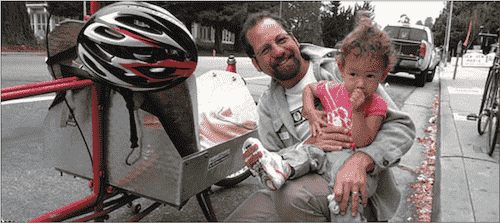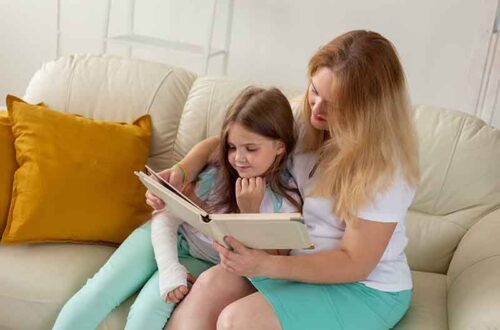How could we possibly raise children without punishment? How will they know the difference between right and wrong?
I think when people picture an absence of punishment they are actually picturing an absence of discipline. Discipline is different than punishment, though. Discipline comes from the word disciple, which implies teaching and learning.
Punishment is punitive in nature and it often comes out of our own anger and need to release that anger. Learning new skills (such as learning the difference between right and wrong) can’t come from punishment because punishment creates an atmosphere that is threatening and often disrespectful.
This is not an atmosphere that is conducive to learning. As parents we can discipline our children without punishing them. I tend to think of punishment kind of like a prescription drug that is designed to treat a symptom. It may even temporarily relieve that symptom, but it unfortunately comes with a long list of side-effects.
What are the side-effects of punishment?
All forms of punishment (spanking, yelling, shaming, lecturing, threatening, taking things away from the child) may work in the short-term in that they insert fear and power into the parent-child dynamic and they can stop a behavior at that moment. Unfortunately, punishment backfires as a long-term strategy; and parenting is a long-term job.
Positive discipline teaches the 4 Rs of punishment:
1. Resentment (the child can start to believe that they can trust their parents)
2. Revenge (the child becomes determined to get even)
3. Rebellion (the child feels they have to do the opposite to gain power)
4. Retreat (The child either learns sneakiness, or completely retreats and gives up on themself)
So how do children learn?
A game-changer for me as a young mom and stepmom was learning and internalizing this simple concept: children learn from modeling. I looked at my kids in a whole new way when I truly got that they are learning from me by watching me live my life. And anyone who lives with kids knows this: they are always watching and listening!
So I’m flying off the handle (because I’m angry) and disrespectfully taking their things away, yelling at them about how I’m disappointed, etc., what I’m actually doing is giving my kids a front-row seat to learn how to be disrespectful.
Similarly, when a parent chooses a physical punishment (like spanking), they are modeling for their children how to use physical violence on others.
So if punishment doesn’t work, what DOES work?
Just because you as a family are choosing not to use punishment, that does not mean that your home has no discipline. Children need us to be their strong leaders.
They need boundaries that are enforced with kindness AND firmness. Some strategies that I’ve found very helpful as alternatives to punishment include: creating routines together, talking about expectations ahead of time, giving children limited choices, modeling respectful behavior, modeling taking positive time outs and creating a cozy place in your home for your child to choose to take a positive time out if they want to, focusing on solutions, using humor, having regular family meetings, and finally, giving yourself and your children grace.
No one is perfect. Not me. Not my kids. As a parent, when I dropped punishment, my role as a parent became more fun and more rewarding too. My role went from “the punisher” to “the guide,” helping my kids grow towards the long-term goal of self-discipline.
Hannah Stubblefield is a certified Positive Discipline Parent Educator. She is a former teacher and current co-owner of Wonderland Toys & Classroom Resources in Aptos. She is wife to Chris, step-mom to Sebastian, boy-mom to Adam, girl-mom to Maya, and dog-mom to Samson. Check out her upcoming in-person parenting class at the Family Circle Center in Aptos, starting Monday September 11.
By Hannah Stubblefield







